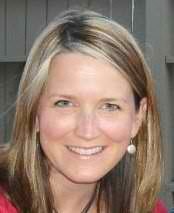The humanitarian program to resettle refugees from across the world starts with the federal government and about $1 billion a year, but it's up to local nonprofits to help them thrive.
Close to three-fourths of the refugees referred for resettlement by the United Nations come to the United States -- on average 58,000 refugees a year over the last decade.
Only about 2 percent of all refugees resettled in the United States come to Tennessee. Of those, the local nonprofit Bridge Refugee and Sponsorship Services helps about 80.
The federal government works with 10 private voluntary agencies, including Episcopal Migration Ministries, that partner with about 350 affiliated offices, including Bridge, to provide services.
"Our goal is to resettle as many people we can provide excellent services to and as many who will be embraced by the community without causing a problem," said Marina Peshterianu, office coordinator for Bridge.
With the help of volunteers and church co-sponsors, Bridge makes sure the refugees have a furnished place to live, food for the first couple of weeks and transportation to doctor's appointments, schools and social agencies. They also assign a case worker to each family who works with them and helps them navigate the system.
But a local group of community members felt that more could be done to help the refugees after they resettle.
Four years ago, a nondenominational church service led to English classes for a group of Burundian refugees, and out of the classes was born Neema Resettlement Outreach.
"The mission is to promote self-sufficiency for refugee and immigrant individuals and families by providing advocacy, support and education in the Chattanooga area," said Susannah Murdock. She is spearheading the initiative with Peter Kanyi, an ordained Episcopal minister originally from Kenya.
The nonprofit group offers English and literacy classes twice a week inside the human services building in the Westside. Pictures of the African refugees holding newborns, planting a garden, attending potlucks adorn the walls. The organization also is building raised beds for a community garden called Taking Root.
"The population we work with are trapped because of limited literacy skills, transportation, health care and housing opportunities -- everything you need to become a productive participating member of the community," said Murdock, daughter of City Councilwoman Sally Robinson.
Bridge welcomes any group that wants to work with it, said Peshterianu, as long as they don't duplicate services.
Bridge can assist clients up to five years after their arrival, she said, but the refugee has to request the assistance.
"After they have a job and a place to live, we let them live their lives," she said.
For up to eight months, refugees can get monthly cash assistance that varies by state. In Tennessee, it can range from $335 to $895 depending on the size of the family. Medical screenings and insurance are provided if they don't qualify for the state's Medicaid program.
The State Department lends the refugees money for plane tickets to the United States that they are required to repay starting six months after they arrive.
But several reports published over the last couple of years, including one from U.S. Sen. Richard Lugar, R-Indiana, argue it's time to take another look at the program officially created in 1980 to meet the needs of today's refugees and the communities where they resettle.
"While offering safe haven to refugees who face persecution should remain a humanitarian imperative for our nation, we must acknowledge the significant costs associated with this activity and find an appropriate policy remedy at the federal level," Lugar said when he released his report two years ago.
Another study, from the Washington, D.C.-based Migration Policy Institute, concluded that the program's goals "need to be sharpened and better aligned and its programs better coordinated and evaluated."
In almost 13 years Peshterianu has worked with refugees, she said there have been many improvements to the program, including additional funding to work with clients who have health problems and for employment services.
"Everyone is doing their best to keep the program going," she said. "It's key to the humanitarian mission of our country."
But in order for the program to be successful, she said, it needs to be flexible and involve the entire community.
Murdock said the local resettlement agency builds a bridge to get people resettled but it only goes so far. For some people it isn't enough, she said, and her group wants to complement those services.
"We can come in and pick up where they leave off and continue the bridge to self-sufficiency, citizenship, stability," she said.
ROAD TO BECOMING A REFUGEE IN U.S.
• Each fiscal year the president, in consultation with Congress, determines the number of refugees who will be admitted.
• Since 2008, the annual ceiling for the number of refugees admitted has remained at 80,000. However, the current ceiling is 65 percent lower than the 1980 ceiling of 231,700.
• Refugees receive permission to immigrate to the United States while they are still abroad. The State Department contracts nongovernmental agencies to do prescreening interviews and prepare applications of prospective refugees.
• The applications are then submitted to U.S. Citizenship and Immigration Services, which runs background checks, interviews individuals and determines whether a person is approved for resettlement.
• Once approved, an applicant, either alone or with his or her close family (spouses and unmarried children under 21), is eligible to come to the United States through the refugee resettlement program.
• Refugees resettled in the United States are automatically eligible to work and to receive public aid cash assistance and medical assistance for up to eight months as an individual and up to five years as a family.
• They can apply for permanent residence after one year. Five years after obtaining permanent residency, they can apply for naturalized citizenship.
Source: Migration Policy Institute


